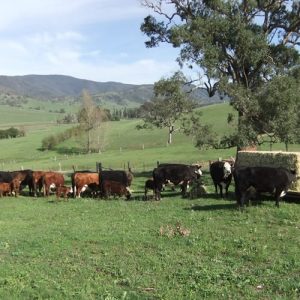Fake Authority
If you have been badly treated by your bank, particularly in connection with a farm loan (or a business loan for that matter) you may have tried to obtain help from the Australian Financial Complaints Authority, ASIC or the ACCC.
You may also have not received any constructive help at all. ASIC and ACCC are not likely to obtain any cash benefits for you to compensate for what the bank has done to you. They both have a multitude of tasks and quite limited resources.
The Australian Financial Complaints Authority (AFCA) sounds as though it is a government body, but it is not that at all. It is in fact a body owned by the finance industry itself, for the benefit of the finance industry. It is self regulation. It acts effectively against minor players doing minor wrongs, but when it comes to banks robbing borrowers of hundreds of thousands of dollars it is hopeless. It sides with the bank and does not have the authority to rectify major bank fraud or compensate borrowers for very significant losses.
Bank Fraud
The most common fraud by banks on customers is in contravention of the Banking Act and if the debt is only a few million dollars, also in contravention of the National Consumer Credit Protection Act. This fraud is often described as the “Debt Trap” or a “Ponzi Loan”, meaning a loan that can only be serviced by taking out more loans to cover the interest and charges. It involves offering to customers loans that can be seen by a skilled banker to be unaffordable by those customers. These affect the majority of borrowers who are not accountants or economists. They are skilled in their own field like farming, grazing, breeding, horticulture or some other form of agribusiness but not skilled in finance or debt management.
If you find that you have run into trouble paying your loan on time for an extended period, the chances are that you have been tricked into the Debt Trap and given a loan that is unsuitable for you. The Banking Royal Commission has revealed how seemingly respectable banks have robbed customers blind.
It is relatively easy when applying for a loan to obtain one that is completely suitable for you, but that will probably not deliver as much profit to the bank, so the banker will not suggest it to you.
Weather
I am a farmer and know how farmers think. Farmers are optimists. They have to be, in a business that is so weather-dependent. That means that when asked to forecast their future yields they err on the high side. A qualified accountant like myself (retired FCA, CPA) knows that forecasts are like dreams and budgets can be plucked out of the air with no realistic foundation at all. A farmer will always estimate crop yield at the best rate likely to be achieved and yet the result is like spinning a chocolate wheel depending on if and when it rains. Sheep and cattle breeders can fairly accurately estimate their lambing or calving rates but they cannot accurately predict prices, floods or droughts.
It is these unknowns that allow their forecasts to often suggest that they can carry more debt that they can in reality. Banks who have been lending to farmers for over 100 years in Australia have a mountain of statistics on farm profitability in every region of the country for every type of farm. They can easily see what level of debt is affordable and what is not. The more reputable banks have become more careful since the government introduced “responsible lending laws”, but the government is looking to relax those.
A common trap used by banks is to have farmers produce cash flow forecasts on which their ability to service the loan will be assessed. However, cash flow can be manipulated by sale, for instance of livestock. Simply put, a beef cattle producer can increase cash flow in a three year period easily by selling more heifers and cows. However the future calvings will fall correspondingly and so will both cash flow and profits in the next few years. Wise farmers will do their own profit forecasts as well as the cash flows. Breeders are assets and it does not help loan servicing to sell off assets that produce the profits. The cash flow error leads many farmers to convert annual farm profits into debt for themselves and profit for the bank, because when profits fall they have to borrow more money to keep on operating.
Challenging the bank
So the 9th hint in turning farm debt into farm profit is to consult a firm like GBAC Advisory to do battle with the bank for you and knock your loan into shape.
It is not really a job for the rural financial counsellors except in the sense that they can be a great deal of assistance in helping you to do your budgets and understand your financial statements. GBAC has done a lot of work in conjunction with Rural Financial Counsellors. However they have two limitations when large non-performing loans are concerned.
Firstly they are not generally qualified accountants and although they will know how to read and interpret the statements prepared by your tax consultant they will not know the many accounting pitfalls that can turn otherwise correct financial statements into a false picture of operations.
The second limitation Rural Financial Counsellors have is that of necessity they develop a quite close relationship with the banking executives in town and would not want to offend them in any way.
We, on the other hand, have seen far too many families suffer and lose or face losing, their homes and farms because of dishonest banking practices. We have no qualms whatsoever about tackling the bank and raising inappropriate or unfair practices with the bank directors or Members of Parliament.
Regulation
Before de-regulation by the Federal Government in the1980’s, bankers made modest profits by serving the needs of their customers and guiding them on their finances. In particular they ensured that a customer would not be offered a loan that they could not afford.
After deregulation, bankers discovered that if they offered more risky loans most borrowers would put in a supreme effort to service them and in most cases they would succeed by working harder and earning more money or by drastically cutting their expenditure pattern.
But in farming that is often not possible. Extravagant living is unusual in the bush a good way from town. Output is largely determined by the size of the farm and what it will carry. The unseen issue by a bank risk manager is the weather. Flood fire and drought can destroy a year’s profit without even trying. A good season can, as Dorothea McKellar would can “ can pay us back threefold.” For the farm without debt that works okay, but for the one with a bank loan the bad season means penalty interest rates and extra charges just at the time when loan repayments cannot be made at all and the overdraft has blown out to beyond its maximum. That increases the debt in a cumulative way that cannot mostly be undone by the next good season which might be five year away.
Act Early
What works best is the farm borrower who engages us for a very brief and inexpensive annual review of their loans and profitability right from day one. In fact many use us to negotiate a more suitable loan in the first place. The old saying “a stitch in time saves nine” is never more applicable that in loan management. A debt problem can be easily nipped in the bud in the year that it arises. Ten years later when the bank has appointed a receiver because the debt has multiplied beyond rational belief, it can often only be solved by a no-holds- barred, knock-‘em -down-drag-‘em -out battle with the bank. It is not just stitches that are saved then, but dollars, farms, happiness and mental health.
For those who do not see the problem coming and are victims of bad seasons or government policies, we can offer good options.
More about that in Hint No 10


 We could be in the lull before the storm. It is easier to obtain better treatment then than if you seek it in the eye of the storm as people often do. Forward planning pays. Remember that interest is not deferred when repayments are.
We could be in the lull before the storm. It is easier to obtain better treatment then than if you seek it in the eye of the storm as people often do. Forward planning pays. Remember that interest is not deferred when repayments are.

 stale bread. What I had never thought about was what moneylenders did with loans that go bad. I wondered what would make a loan go bad. Default by the borrower was one way. Default by the lender might be another.
stale bread. What I had never thought about was what moneylenders did with loans that go bad. I wondered what would make a loan go bad. Default by the borrower was one way. Default by the lender might be another.